
Marjan Hill: The Green Heart of Split
Marjan Hill, often referred to as the lungs of Split, is a sprawling green oasis that offers a refreshing escape from the bustling city life. This lush peninsula is adorned with dense pine forests, picturesque walking trails, and scenic viewpoints that provide stunning panoramic views of the Adriatic Sea and Split's historic Old Town. Visitors can explore the hill's many paths, which are perfect for hiking, jogging, or simply enjoying a leisurely stroll amidst nature. Marjan is not just about natural beauty; it is also steeped in history and culture. Scattered along its trails, you'll find charming chapels, ancient ruins, and the quaint St. Jerome Church, which dates back to the 15th century. The hill is also home to the Split Zoo and the Marjan Forest Park, both of which are perfect for a family outing. For those interested in art, the Mestrovic Gallery, located at the foot of Marjan Hill, showcases the works of Croatia's most famous sculptor, Ivan Mestrovic. The hill's highest point, Telegrin, offers a breathtaking vantage point where you can soak in the stunning vistas of the surrounding islands and the Dalmatian coast. Whether you are a nature enthusiast, a history buff, or simply looking for a tranquil spot to unwind, Marjan Hill has something to offer for every type of traveler. Don't forget to pack a picnic and enjoy a meal with a view at one of the hill's many scenic spots.
Local tips in Marjan
- Wear comfortable walking shoes as the trails can be steep and rugged.
- Bring water and snacks, especially if you plan to hike to the top.
- Visit early in the morning or late in the afternoon to avoid the midday heat.
- Don't miss the Mestrovic Gallery for a dose of local art and culture.
- Check out the small chapels and ruins along the trails for a touch of history.
Marjan Hill: The Green Heart of Split
Marjan Hill, often referred to as the lungs of Split, is a sprawling green oasis that offers a refreshing escape from the bustling city life. This lush peninsula is adorned with dense pine forests, picturesque walking trails, and scenic viewpoints that provide stunning panoramic views of the Adriatic Sea and Split's historic Old Town. Visitors can explore the hill's many paths, which are perfect for hiking, jogging, or simply enjoying a leisurely stroll amidst nature. Marjan is not just about natural beauty; it is also steeped in history and culture. Scattered along its trails, you'll find charming chapels, ancient ruins, and the quaint St. Jerome Church, which dates back to the 15th century. The hill is also home to the Split Zoo and the Marjan Forest Park, both of which are perfect for a family outing. For those interested in art, the Mestrovic Gallery, located at the foot of Marjan Hill, showcases the works of Croatia's most famous sculptor, Ivan Mestrovic. The hill's highest point, Telegrin, offers a breathtaking vantage point where you can soak in the stunning vistas of the surrounding islands and the Dalmatian coast. Whether you are a nature enthusiast, a history buff, or simply looking for a tranquil spot to unwind, Marjan Hill has something to offer for every type of traveler. Don't forget to pack a picnic and enjoy a meal with a view at one of the hill's many scenic spots.
Iconic landmarks you can’t miss
Forest Park Marjan
Explore the serene beauty of Forest Park Marjan, a lush haven in Split offering stunning views, nature trails, and cultural treasures.

Viewpoint to Marjan
Discover stunning panoramic views of Split and the Adriatic Sea at the Marjan Viewpoint, a must-visit observation deck for all travelers.
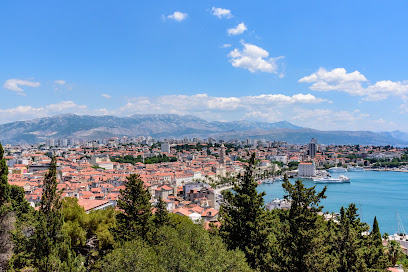
Telegrin Peak
Experience the stunning panoramas of Split and the Dalmatian islands from the breathtaking vantage point of Telegrin Peak.
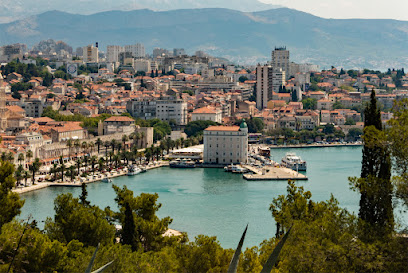
Marjan Hill Stairs
Experience the breathtaking views and serene nature at Marjan Hill Stairs, a must-visit hiking area in Split for outdoor enthusiasts.
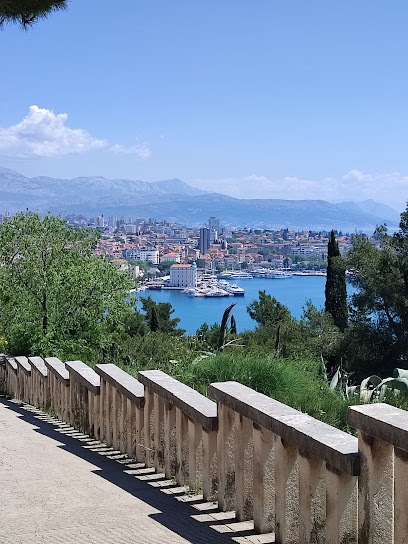
Marjan Park - Sjever
Explore Marjan Park in Split, Croatia, a stunning natural oasis featuring hiking trails, breathtaking views, and rich historical landmarks.
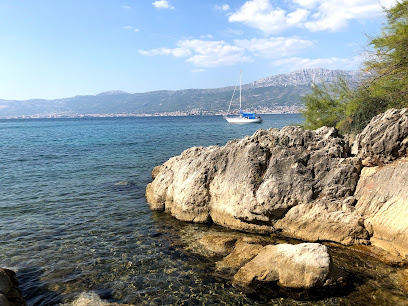
Marjan Park Viewpoint
Experience breathtaking views of Split and the Adriatic Sea at Marjan Park Viewpoint, a top tourist attraction in Croatia.
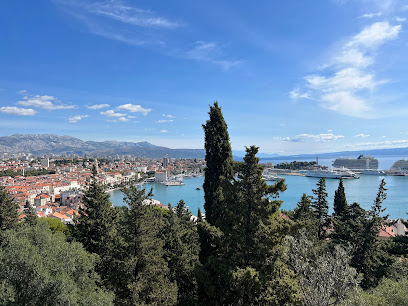
Križ na Marjanu
Discover Križ na Marjanu, a serene chapel in Split offering breathtaking views and a peaceful atmosphere amidst nature's beauty.
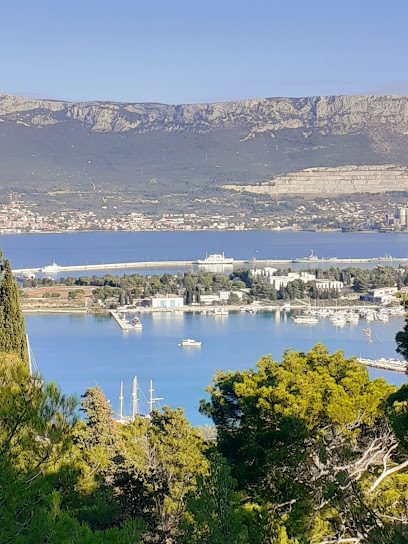
Kaštelanska vidilica
Experience the breathtaking views and serene atmosphere at Kaštelanska Vidilica, a must-visit attraction in the heart of Split.
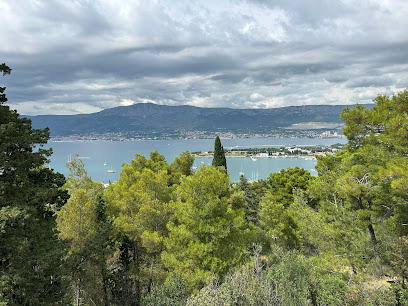
IZVIĐAČA MARJAN memorial
Discover the IZVIĐAČA MARJAN Memorial in Split, Croatia: a tribute to scouting, exploration, and the beauty of Marjan Forest Park.
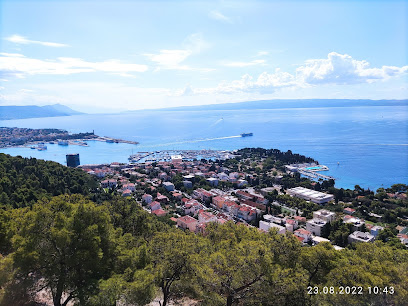
Turisticki Vlakic Park Marjan
Explore the serene beauty and cultural richness of Turisticki Vlakic Park Marjan in Split, a perfect getaway for nature lovers and families alike.
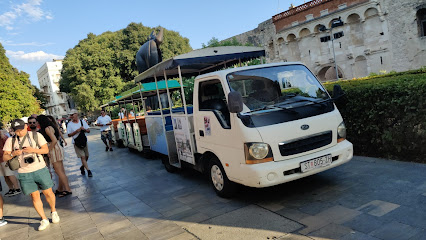
Unmissable attractions to see
Diocletian's Palace
Explore the ancient wonders of Diocletian's Palace in Split, a UNESCO World Heritage site rich in history and vibrant culture.
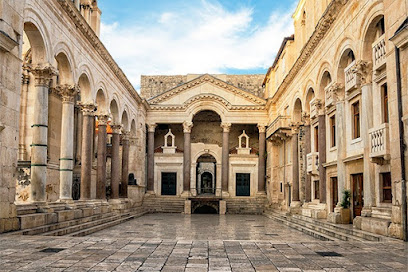
Saint Domnius Cathedral
Explore the breathtaking architecture and rich history of Saint Domnius Cathedral, a must-visit landmark in Split, Croatia.

Mestrovic Gallery
Discover the masterpieces of Ivan Mestrovic at the Mestrovic Gallery, where art meets nature in splendid harmony along the Split coastline.
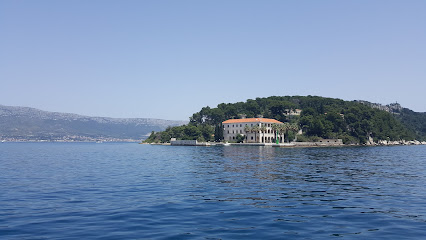
Marjan Hill Stairs
Explore the stunning Marjan Hill Stairs in Split, Croatia, where breathtaking views and vibrant nature await every adventurer.
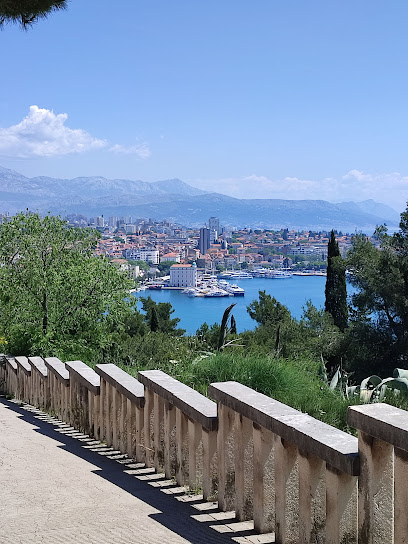
Marjan Park Viewpoint
Experience breathtaking views of Split and the Adriatic Sea at Marjan Park Viewpoint, a serene escape within a beautiful natural park.
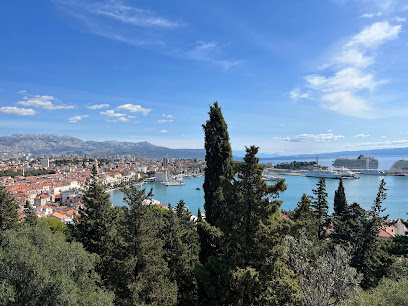
Rondell
Experience the enchanting beauty of Rondell, a must-visit tourist attraction in Split, Croatia, blending history with stunning views.
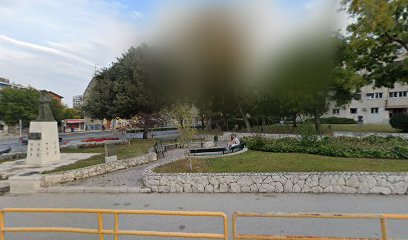
Viewpoint on Marina Kastela
Experience breathtaking panoramic views of the Adriatic Sea at the Viewpoint on Marina Kastela in Split, Croatia.
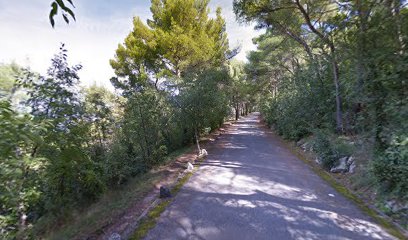
Essential places to dine
Chops Grill - Steak & Seafood
Discover exceptional steak and seafood at Chops Grill in Split – where culinary excellence meets local flavor.
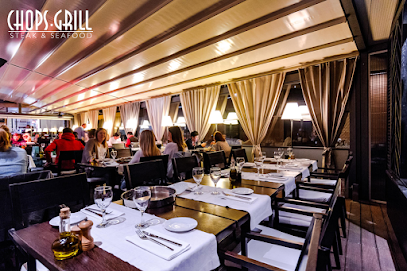
OLIVE TREE Dining & Clubbing
Experience culinary excellence at OLIVE TREE Dining & Clubbing in Split - where fresh ingredients meet vibrant flavors in an inviting atmosphere.
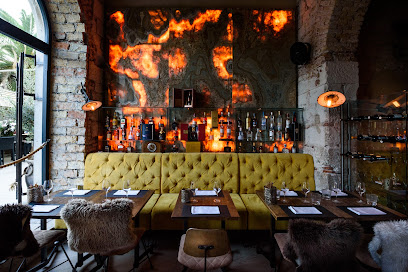
Corto Maltese Freestyle food
Discover culinary creativity at Corto Maltese Freestyle Food in Split, where tradition meets innovation in every dish.
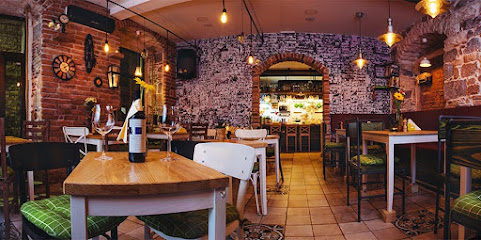
Lučica
Discover the flavors of Mediterranean cuisine at Lučica - an exquisite restaurant in Split offering delightful grills and pizzas.
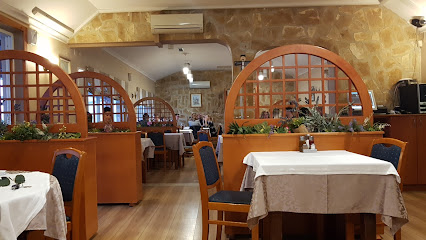
Villa Spiza
Discover authentic Croatian cuisine at Villa Spiza in Split, where every dish tells a story through fresh local ingredients.
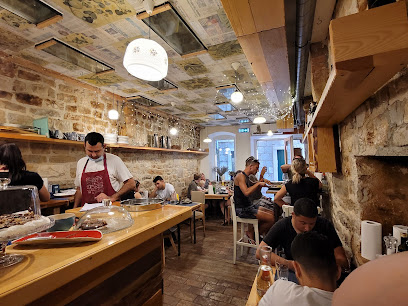
Konoba Marjan
Discover the essence of Dalmatian cuisine at Konoba Marjan, where every dish tells a story of tradition and flavor.
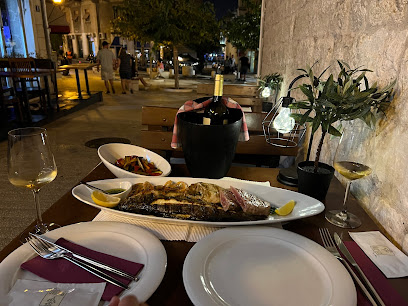
Konoba Fratelli
Experience authentic Croatian cuisine at Konoba Fratelli in Split - where tradition meets taste in every dish.
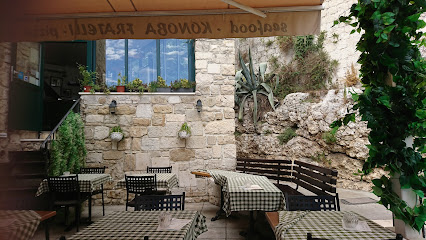
Dujkin dvor
Experience authentic Croatian cuisine at Dujkin Dvor in Split - where exceptional service meets stunning Adriatic views.
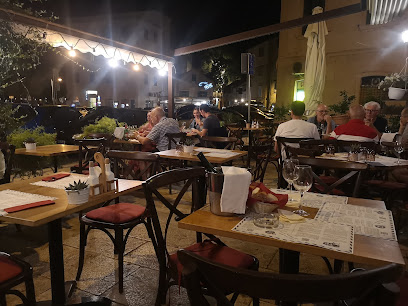
TAVERN Deep Shade
Savor traditional Dalmatian dishes in a cozy setting at Tavern Deep Shade in Split - where flavor meets hospitality.
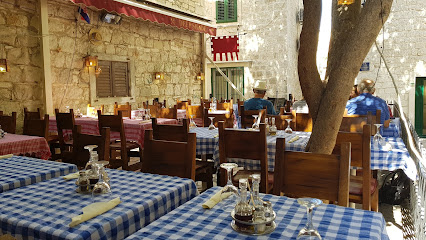
Daddy Cool
Experience the vibrant flavors of falafel and hamburgers at Daddy Cool, a must-visit eatery in Split's bustling culinary scene.
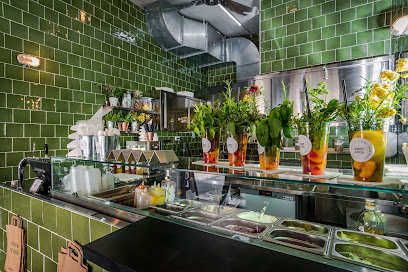
Markets, malls and hidden boutiques
Mall of Split
Discover the Mall of Split, a dynamic shopping haven featuring diverse stores, restaurants, and entertainment in the heart of this historic city.

City Center one Split
Discover the ultimate shopping experience at City Center One Split, where fashion, dining, and entertainment converge in a vibrant atmosphere.

BREAK TIME Handmade Jewellery & Souvenirs
Explore handcrafted jewelry and unique souvenirs in the heart of Split, capturing the essence of Croatian craftsmanship and creativity.
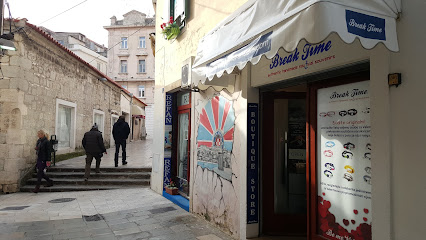
GET MORE artisan craft souvenir shop
Discover unique artisan crafts at GET MORE in Split, a must-visit souvenir shop showcasing local artistry and culture.
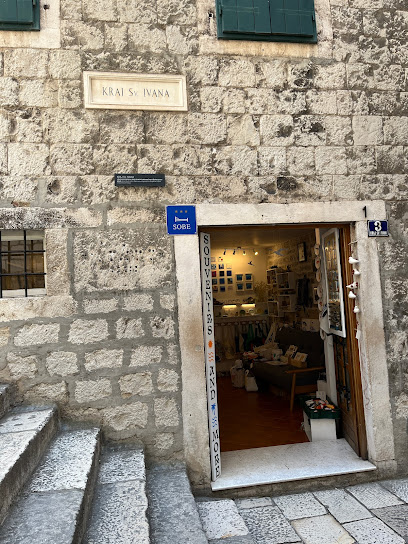
Souvenir Store Papi - Split
Explore handcrafted treasures and authentic Croatian art at Souvenir Store Papi in Split, your go-to for unique souvenirs.
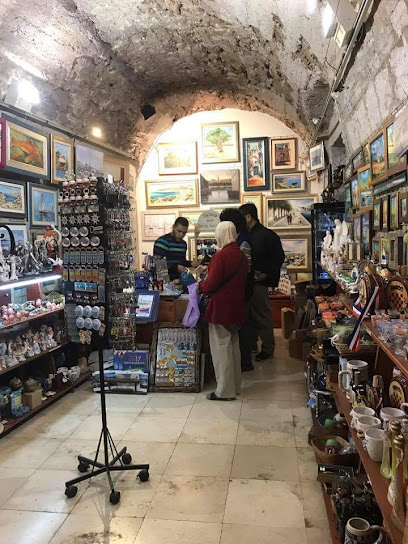
Designer Store KRUG
Discover high-end fashion and unique accessories at Designer Store KRUG in the heart of Split, Croatia.
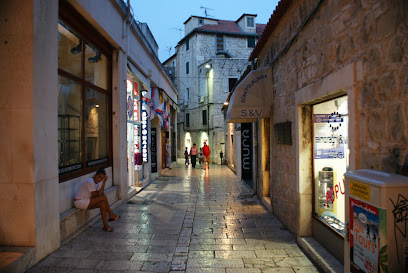
CRO Corner
Explore the heart of Split at CRO Corner, your go-to destination for unique gifts and local craftsmanship that captures the spirit of Croatia.
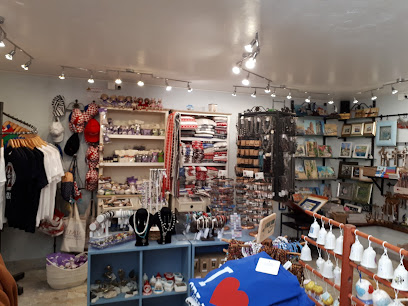
Christmas Shop Split
Explore the enchanting Christmas Shop Split for unique ornaments, festive gifts, and delightful treats in a magical holiday atmosphere.
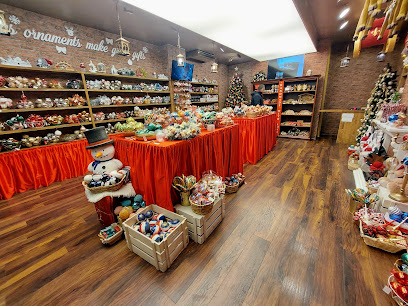
Duck Shop Split
Discover the charm of Croatian souvenirs at Duck Shop Split, where unique gifts and local crafts await to delight every visitor.

FRIDA Boutique
Discover unique women's fashion at FRIDA Boutique in Split, where local style meets international trends in a charming shopping experience.
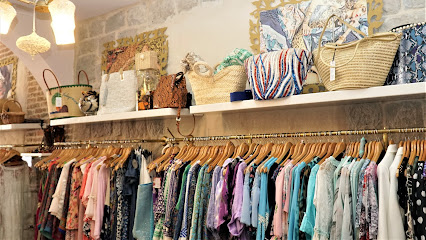
Souvenir & Gift Shop Lily
Discover a unique selection of authentic Croatian souvenirs at Souvenir & Gift Shop Lily, where every item tells a story.
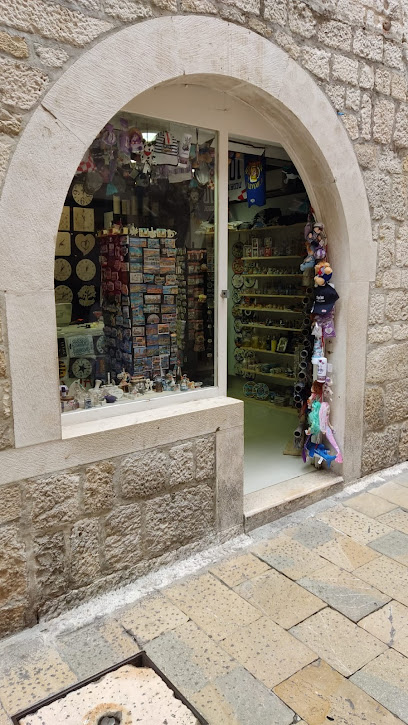
Arteria artis d.o.o
Discover unique fashion and handcrafted jewelry at Arteria in Split, Croatia - a perfect blend of style and local craftsmanship.
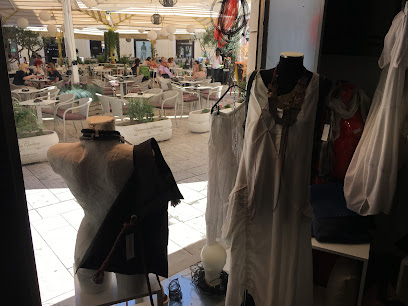
Duck Boutique Split
Explore Duck Boutique Split, a charming gift shop filled with unique souvenirs and local crafts, perfect for capturing the essence of Croatia!

MARJAN TISAK d.o.o.
Explore the charming MARJAN TISAK d.o.o. bookstore in Split, a treasure trove of literature and local culture waiting to be discovered.
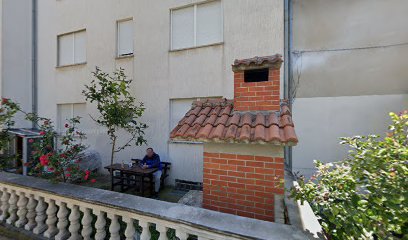
Magnet joli
Explore Magnet Joli in Split for unique gifts and authentic Croatian souvenirs that reflect the rich culture and artistry of the region.
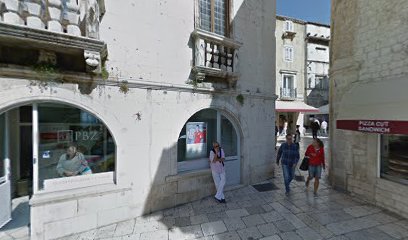
Essential bars & hidden hideouts
Marvlvs Library Jazz Bar
Discover the unique blend of jazz and literature at Marvlvs Library Jazz Bar in Split, a perfect spot for wine lovers and music enthusiasts.
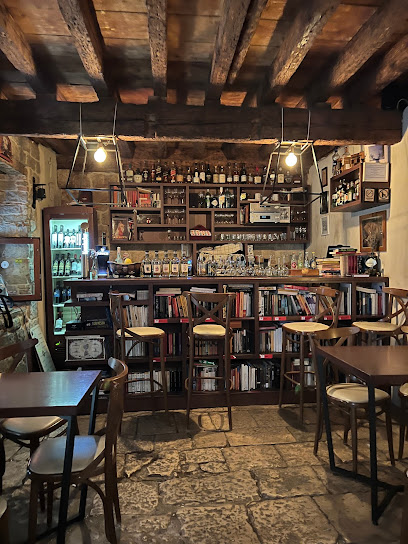
Jadran Beach Bar
Experience the vibrant atmosphere of Jadran Beach Bar in Split, where refreshing cocktails meet stunning Adriatic views for an unforgettable beach day.
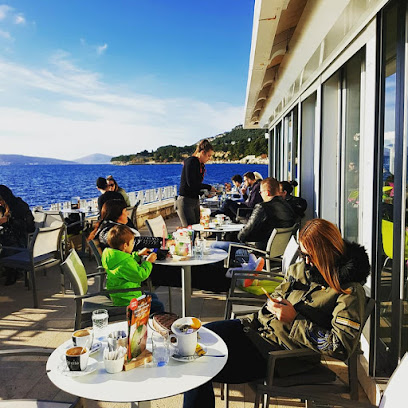
Antique Bar
Experience the vibrant atmosphere of Antique Bar in Split, where exquisite coffee meets lively nightlife in a charming setting.
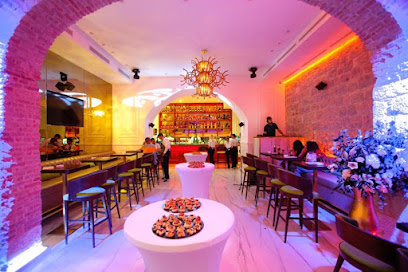
Maduro Bar
Maduro Bar in Split: A vibrant bar offering delicious breakfast and refreshing drinks with stunning views of the Adriatic.
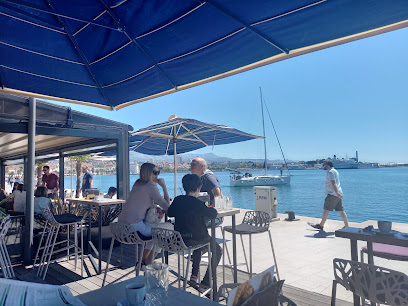
Cool Garden
Discover the lively Cool Garden in Split, a premier beer garden with 70 beer varieties and 40 gins, perfect for relaxation and socializing.
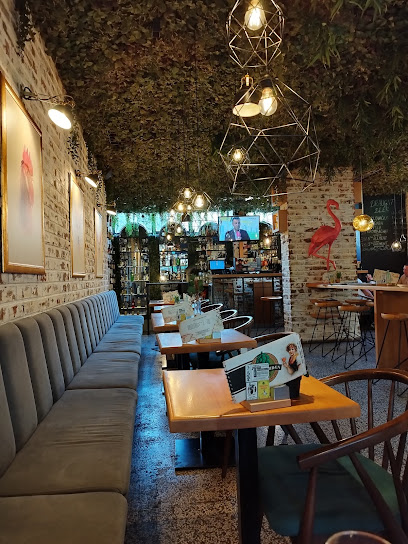
Pun Kufer Cocktail Bar
Discover Pun Kufer Cocktail Bar: An eclectic gem in Split, renowned for creative cocktails and a vibrant atmosphere, perfect for nightlife lovers.
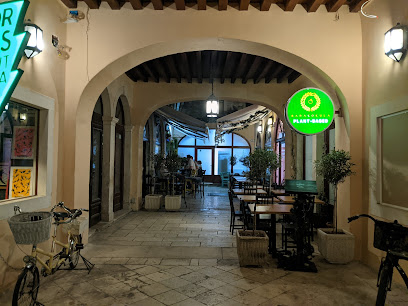
NOOR Fine Spirits & Cocktails
Experience the finest cocktails and vibrant nightlife at NOOR Fine Spirits & Cocktails in Split, Croatia.
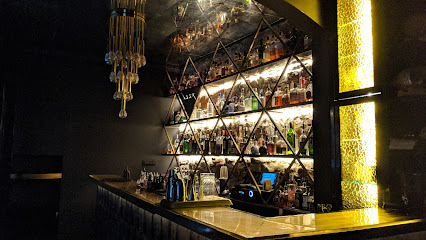
MoNIKa's Wine Bar
Experience the essence of Croatian wine culture at MoNIKa's Wine Bar in Split, where every sip tells a story.
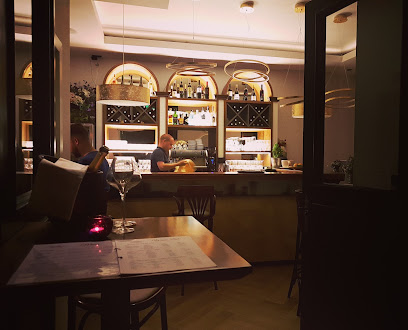
Caffe Bar Boheme
Discover the enchanting ambiance of Caffe Bar Boheme in Split, offering a perfect blend of relaxation and local culture in a beautiful Mediterranean setting.
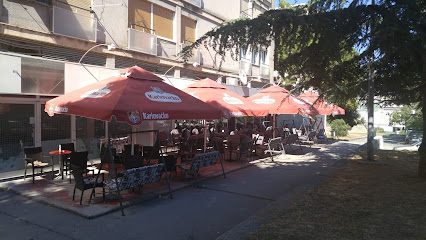
Wine bar Procaffe
Discover Procaffe, Split's enchanting wine bar offering a splendid selection of local and international wines in a cozy and inviting atmosphere.
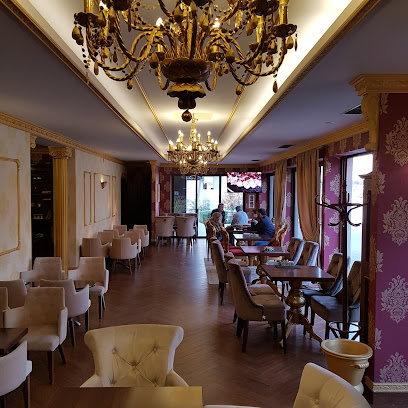
Local Phrases
-
- HelloBok
[bohk] - GoodbyeDoviđenja
[doh-vee-jeh-nyah] - YesDa
[dah] - NoNe
[neh] - Please/You're welcomeMolim
[moh-leem] - Thank youHvala
[hvah-lah] - Excuse me/SorryOprosti
[oh-pros-tee] - How are you?Kako si?
[kah-koh see] - Fine. And you?Dobro. A ti?
[doh-broh ah tee] - Do you speak English?Govoriš li engleski?
[goh-voh-reesh lee ehn-glehs-kee] - I don't understandNe razumijem
[neh rah-zoo-mee-yem]
- HelloBok
-
- I'd like to see the menu, pleaseMolim vas, mogu li vidjeti jelovnik?
[moh-leem vahs, moh-goo lee vee-dyeh-tee yeh-lohv-neek] - I don't eat meatNe jedem meso
[neh yeh-dehm meh-soh] - Cheers!Živjeli!
[zhee-vyeh-lee] - I would like to pay, pleaseMolim vas, želim platiti
[moh-leem vahs, zheh-leem plah-tee-tee]
- I'd like to see the menu, pleaseMolim vas, mogu li vidjeti jelovnik?
-
- Help!Pomoć!
[poh-mohtch] - Go away!Idi odavde!
[ee-dee oh-dahv-deh] - Call the Police!Zovite policiju!
[zoh-vee-teh poh-lee-tsee-yoo] - Call a doctor!Zovite doktora!
[zoh-vee-teh dohk-toh-rah] - I'm lostIzgubio/la sam se
[eez-goo-byoh/lah sahm seh] - I'm illBolestan/sna sam
[boh-leh-stahn/snah sahm]
- Help!Pomoć!
-
- I'd like to buy...Želim kupiti...
[zheh-leem koo-pee-tee] - I'm just lookingSamo gledam
[sah-moh gleh-dahm] - How much is it?Koliko košta?
[koh-lee-koh koh-shtah] - That's too expensiveTo je previše skupo
[toh yeh preh-vee-sheh skoo-poh] - Can you lower the price?Možete li spustiti cijenu?
[moh-zheh-teh lee spoo-stee-tee tsee-yeh-noo]
- I'd like to buy...Želim kupiti...
-
- What time is it?Koliko je sati?
[koh-lee-koh yeh sah-tee] - It's one o'clockJedan je sat
[yeh-dahn yeh saht] - Half past (10)Pola (deset)
[poh-lah (deh-seht)] - MorningJutro
[yoo-troh] - AfternoonPopodne
[poh-pohd-neh] - EveningVečer
[veh-chehr] - YesterdayJučer
[yoo-cher] - TodayDanas
[dah-nahs] - TomorrowSutra
[soo-trah] - 1Jedan
[yeh-dahn] - 2Dva
[dvah] - 3Tri
[tree] - 4Četiri
[cheh-tee-ree] - 5Pet
[peht] - 6Šest
[shehst] - 7Sedam
[seh-dahm] - 8Osam
[oh-sahm] - 9Devet
[deh-veht] - 10Deset
[deh-seht]
- What time is it?Koliko je sati?
-
- Where's a/the...?Gdje je...?
[gdyeh yeh] - What's the address?Koja je adresa?
[koh-yah yeh ah-deh-sah] - Can you show me (on the map)?Možete li mi pokazati (na karti)?
[moh-zheh-teh lee mee poh-kah-zah-tee nah kahr-tee] - When's the next (bus)?Kada je sljedeći (autobus)?
[kah-dah yeh sleh-deh-chee ow-toh-boos] - A ticket (to ....)Jednu kartu (do ....)
[yehd-noo kahr-too doh]
- Where's a/the...?Gdje je...?
History of Marjan
-
The Marjan peninsula has a history that traces back to prehistoric times, with evidence of human presence in the area from the Neolithic period. Archaeological findings, such as tools and remnants of settlements, indicate that this region was inhabited by early humans who appreciated its natural beauty and resources.
-
During the Roman Empire, the Marjan area was a favored retreat for the wealthy citizens of Salona, the ancient capital of the Roman province of Dalmatia. The lush Mediterranean landscape served as a recreational area, and remnants of Roman villas and structures can still be found, highlighting the area’s importance as a leisure destination.
-
In the 6th century, with the decline of the Roman Empire, Marjan became a site of monastic life. The establishment of the Monastery of St. Nicholas in the 11th century marked a significant development in the area, as it became a center for spiritual life and education, contributing to the cultural landscape of Split.
-
During the Renaissance, Marjan emerged as a cultural hub. The area attracted artists, writers, and scholars who found inspiration in its natural beauty. The construction of the 'Marmontova staza,' a pathway that traverses the peninsula, began in the early 19th century, enhancing access to Marjan and fostering its growth as a popular destination for both locals and visitors.
-
The early 20th century saw the establishment of parks and recreational areas in Marjan, solidifying its role as a green oasis for the citizens of Split. The area became a preferred location for leisure activities, with the construction of walking paths, viewpoints, and various sports facilities, reflecting the changing social dynamics and the importance of outdoor spaces in urban life.
-
In recent decades, efforts to preserve Marjan’s natural and historical heritage have intensified, particularly after it was declared a protected area in 1964. The Marjan Forest Park serves as a crucial ecological and recreational space, balancing the need for urban development with the preservation of nature, making it an integral part of Split's identity and culture today.
Marjan Essentials
-
Marjan is conveniently located near the city center of Split. From Diocletian's Palace, you can walk to Marjan in about 20 minutes. Alternatively, you can take a taxi or use rideshare apps like Uber for a quicker option. Public buses also connect various parts of Split to Marjan, with the nearest bus stop located at the base of the hill.
-
Marjan is best explored on foot or by bicycle, as its winding paths and scenic views are best enjoyed at a leisurely pace. You can rent bicycles from local shops or use the city's bike-sharing program. Public transport options, like buses, are limited within Marjan; however, the city buses can take you to the outskirts. Taxis are available for those looking for a more direct route.
-
Marjan is generally a safe neighbourhood for tourists. However, as with any popular tourist area, it is advisable to remain vigilant, particularly in densely populated places. Avoid wandering alone at night, especially along the less lit paths of the park. There are no specific high-crime areas, but petty theft can occur, so keep your belongings secure.
-
In case of an emergency, dial 112 for police or medical assistance. Local hospitals and clinics are equipped to handle urgent health issues. It is advisable to have travel insurance that covers emergencies. Pharmacies are available for minor health concerns, and you can find English-speaking staff in many tourist areas.
-
Fashion: Do wear comfortable walking shoes and light clothing suitable for the Mediterranean climate. Don’t wear beachwear outside of the beach areas. Religion: Do respect local customs and dress modestly when visiting holy sites. Public Transport: Do be polite and give up your seat to those in need. Don’t eat or drink on public transport. Greetings: Do greet locals with a friendly 'Dobar dan' (Good day). Don’t assume everyone speaks English. Eating & Drinking: Do enjoy local seafood and wines. Don’t drink in public places outside designated areas.
-
To experience Marjan like a local, start your day with a morning jog or walk along the paths that wind through the pine forest. Visit the viewpoint at the top of the hill for stunning views of Split and the surrounding islands. Stop by local cafes for a coffee and chat with residents. Additionally, try to visit during the off-peak seasons for a more tranquil experience.
-
While in Marjan, make sure to visit the Marjan Forest Park, which offers numerous hiking and biking trails. Don't miss the 12th-century church of St. Nicholas and the 19th-century Jewish cemetery, both of which provide insight into the area's history. The beaches along the coast are perfect for a relaxing afternoon, and you can also find several lookout points with breathtaking views.
-
Marjan has a variety of dining options, from casual konobas (taverns) serving traditional Dalmatian cuisine to upscale restaurants offering seafood specialties. It's advisable to try local dishes like pašticada or fresh grilled fish. Many places offer outdoor seating with views of the sea, enhancing your dining experience.
Nearby Cities to Marjan
-
Things To Do in Trogir
-
Things To Do in Hvar
-
Things To Do in Makarska
-
Things To Do in Mostar
-
Things To Do in Jajce
-
Things To Do in Zadar
-
Things To Do in Zenica
-
Things To Do in Bihac
-
Things To Do in Banja Luka
-
Things To Do in Sarajevo
-
Things To Do in Dubrovnik
-
Things To Do in Trebinje
-
Things To Do in Herceg Novi
-
Things To Do in Tuzla
-
Things To Do in Perast











